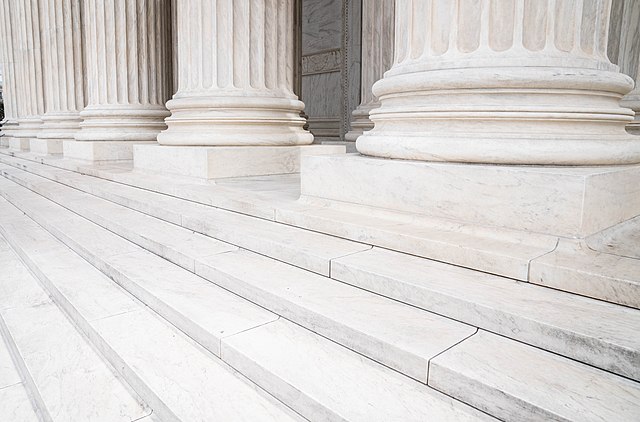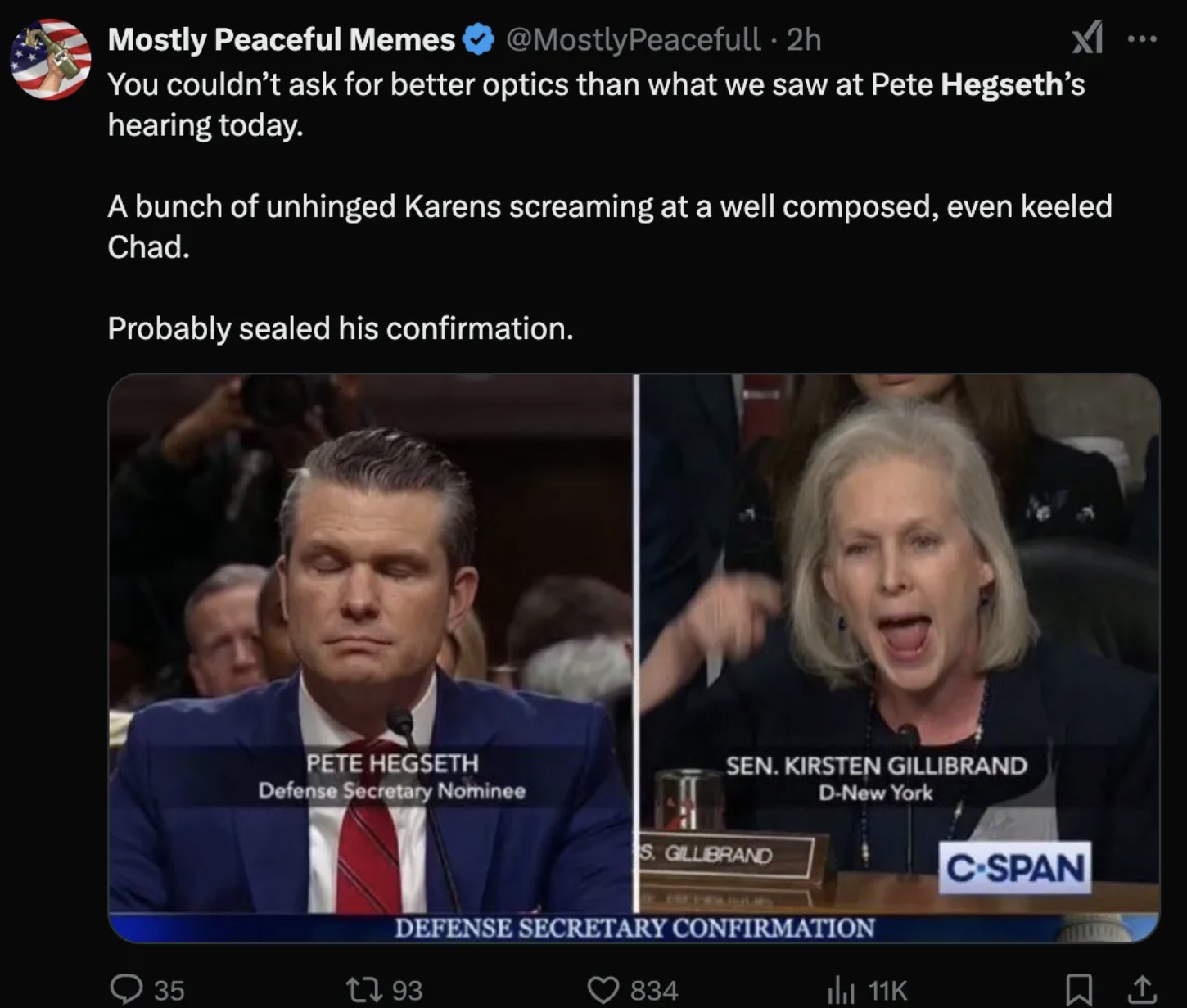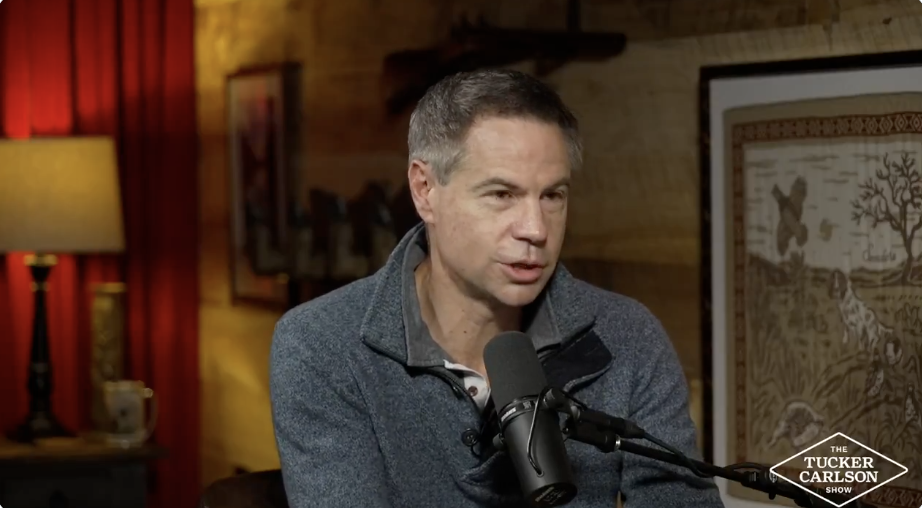Brunson v. Adams was filed out of Ogden Utah. The case has been accepted for review by the Supreme Court of the United States (SCOTUS.)
What is this case about? How does it concern me?

Please Follow us on Gab, Minds, Telegram, Rumble, Gab TV, GETTR, Truth Social
Following the 2020 election, certain legislators, Senators and others brought forward evidence and claims suggesting there was some sort of malfeasance during the 2020 election.
Once these claims and evidence were brought forward following the election, Congress was required to pause in order to investigate and ascertain the validity of these concerns. Among other things, this pause would have delayed the January 6th vote by Congress to certify the Electors and thus confirm the results of the election and next President of the United States.
Mike Pence and members of Congress voted NOT to pause nor did they implement an investigation surrounding these claims. Congress proceeded to confirm the Electors and their votes and name Joe Biden as newly elected President.
The case asserts that by failing to fulfill the requirement to investigate, all those who refused to investigate failed to fulfill their Oaths to protect the Country and Constitution. Failure to protect the Country is tantamount to committing treason. Consequently, these officials are open to investigation on such charges and if found guilty they could face the associated penalties.
The case asks that all those who failed to protect the Country be immediately removed from office and barred from holding future public office for the remainder of their lives. This would potentially include the President, Vice President and more than 380 members of Congress. Were this to be granted it could be followed by further investigation into their actions which could lead to criminal proceedings.
Why is this case now before the Supreme Court?
The Supreme Court has thousands of cases brought to it for review each year. It is the Court’s decision which cases to take on and typically they review a relatively small number (several hundred per year of the thousands submitted.)
This case is before SCOTUS because they CHOSE to review this case.
Why would this case of all of those brought forward be one of those chosen for review? Most Constitutional professors and those familiar with the Supreme Court would suggest that the Court would be extremely unlikely to take this case on. It’s too controversial, too volatile, too outlandish. So the question remains “why did they agree to review this case?”
Who asked for Congress to pause and investigate?
During the first week of January 2021, prior to January 6th, amidst numerous instances of emerging evidence and concerns, U.S. Senators Ted Cruz, Ron Johnson, James Lankford, Steve Daines, Marsha Blackburn, and Mike Braun, along with Senators-Elect Cynthia Lummis, Roger Marshall, Bill Hagerty and Tommy Tuberville, issued a statement calling for a 10-day pause in the Electoral process, and further asked Congress to appoint an Electoral Commission and to perform an emergency audit on the election results from the disputed States.
.
.
.
.
.
.
.
.
.
.
.
.
Was there precedent for such a “Pause”?
In fact, in 1877 allegations of fraud and illegal conduct arose surrounding the Hayes-Tilden Presidential Race, Congress appointed an Electoral Commission including five Senators, five House members and five Supreme Court Justices who were charged with investigation and resolution of the disputed returns.
In 2020, Congress refused to be guided by this precedent and chose not to conduct such an investigation.
What could the Supreme Court do?
They have several choices –
- They could review and do nothing. This amplifies the open question: Given the extreme nature of the case, why would they take it on and how could they then elect to do nothing?
- They can review and issue an opinion. If such opinion were “soft” and simply recommended some sort of further study, why would they put themselves in such a position? What would be accomplished?
- They could issue a finding and orders. Granting the requests of the Plaintiff would result in the removal of the Defendants from office. The court could then refer additional actions to other authorities. This earth-shattering step would have historical significance. The result would likely include the setting-aside of 2020 (and 2022 Election) results and potentially a re-do of both elections.
When would/could the Court act?
SCOTUS has no time limit as to when they are required to act. It is notable that in the midst of the Holiday season that the case would be before them. Also of note is that we are currently under a “lame-duck” Congress. The new Congress is due to be sworn in January 3, 2023.
SCOTUS COULD act at any time of their choosing.
Keep The Truth Bombs Coming From CDMedia! Donate!
Where did this case come from?
The case was one of several filings by the Brunson brothers from Ogden Utah. Following earlier attempts, on June 21, 2021, Raland Brunson filed this case in the Utah’s 2nd District Court.
In August 2021, U.S. Attorneys stepped in to have the case moved to Federal Court and subsequently asked to have the case dismissed.
The case was initially dismissed by the Federal Court and the Brunson brothers pursued appeal through the 10th Circuit Appellate Court.
After learning there was no need to wait for a ruling by the 10h Circuit court, the Brunson brothers began preparations to bring the case before the United State Supreme Court.
A revised petition was submitted to SCOTUS on October 21st, 2022 and appeared on the docket on October 24. On November 23, 2022, Elizabeth B. Prelogar, the Solicitor General of the United States and attorney for the defendants waived the right to respond to the lawsuit. This opened the door for SCOTUS to review the case in conference in the coming days.
What happens next?
The Supreme Court Justices can consider the case in private conference, which may occur in the next week. If four of the Justices agree, the case can move to a full hearing.
All should keep a sharp eye on the Brunson v. Adams case as new information and findings emerge.

























All Free Americans wanted was an Audit of said States in question as there were many concerns of corruption and fraud in the 2020 election. It was sad to see all who just wanted the law to step in to ensure no corruption took place felt like their rights were stepped on and dismissed and then later called conspiracy theorists and election deniers, which was a joke after listening to Hilary since 2016 on how she was cheated...
I pray we remove the corrupt from all public offices... A lofty prayer but with God anything is possible.
This is fake news. The Supreme Court has not accepted the case for review. A petition asking it to review the case is pending, but the Court is not obligated to accept the petition, and is unlikely to do so.
@Chip. it has indeed been accepted the case for review. Go to scotus.gov and look for yourself.
Of course the DemocRATs found out how to cheat.
Watch this video and see 19,958 votes flip from Trump to Biden in the 2020 election.
https://www.youtube.com/watch?v=1-B-Nci99GI&ab_channel=BlaqBalled
Keep your eyes on Pennsylvania! In this clip PA has Trump at 1,690,589 & Biden is at 1,252,537 at the beginning of the clip.. then at the end when Pennsylvania pops up again, Trump magically is then down to 1,670,631 & Biden has gone up to 1,272,495.. what happened was 19,958 votes FLIPPED right before our eyes! Biden's number went UP by the EXACT same amount Trump's number went DOWN! again, watch Trump (1690...) goes down to (1670...) while biden (1252...) goes up (1272...) There's been machine "glitches" similar to this one reported in several different areas.. some have pointed out its a program that is designed to do exactly what you've seen here
The 2020 election was rigged in favor of senile, little girl fondling Joe Biden.
The crybaby libs just will not believe their lying eyes.
While we all want the Court to review the case and rule that the 2020 was a fraud, I know the only reason the Court is taking the case is to rule that everything was on the up and up and put the matter to rest.
There will be no justice as a result of this proceeding.
This lawsuit has nothing to do with the SCOTUS making a judgment about fraud. It is about the members of congress not fulfilling their oath to the Constitution.
It astonishes me that so many websites seem to be implying that the Supreme Court will decide the Brunson case on its merits. The District Court ruled they lacked standing to bring the lawsuit and this is the question on appeal to the Supreme Court. If the Supreme Court rules they have standing, the case will surely be remanded to the District Court for trial on its merits.
As to why the court may have decided to review this case, a review of the 10/6/22 Appeal Court decision, https://casetext.com/case/brunson-v-adams-4 suggests the District Court may have interpreted certain standing matters very narrowly. The Court of Appeals hands were tied by its own rules because Brunson failed to challenge the specifics of the courts standing analysis, provided no explanation of why he did not, and there was not an obvious error in the District Court's finding.
(from the Court of Appeals Decision, pps 3-5) "Mr. Brunson's objection was timely, he did not specifically challenge the magistrate judge's standing analysis. The firm waiver rule therefore applies unless the interests of justice dictate otherwise....Mr. Brunson makes no effort to explain why he failed to specifically challenge the magistrate judge's standing analysis... We cannot say the district court's conclusion that Mr. Brunson lacked standing is plainly erroneous."
The Supreme Court might have concerns about the District Court's original standing analysis, or it may have concerns about the standards of review applied by the Circuit Court ( "firm waiver [of right to appeal] rule" ) or the way the court applied the "interests-of-justice exception to its firm waiver rule.
The Supreme Court should not express an opinion about the merits of Brunson's case, because no lower court has yet ruled on them. Possible outcomes seem likely to be 1) a clarification of how standing should be analyzed when individual voters challenge election procedures in court, 2) a clarification of how standards of appellate review should be applied, with a remand to the Circuit Court for reconsideration, 3) an outright decision that Brunson has standing (or not), and or 4) a remand to the District Court for reconsideration of the standing question or a trial on the merits.
A reminder of previous fair-warnings is prescribed in paragraph 1 of The Declaration of Independence.
But SCOTUS better help the Jan. 6 Swamp unphukitself, or else further assistance may be forthcoming.
Consider, it does not matter what the powers that be think, it does not matter what concerned parties think, the fact remains, there are only a very few SIMPLE things that can/must be done to remedy this situation, one must ask WHY are these the ONLY thing authorities are refusing to do? The reason this MUST be done, again, right or wrong, the "perception" of 10s of millions taxpaying/voting citizens believe there is a problem with our voting system, again, it does not matter who thinks what, MILLIONS of citizens must be satisfied. Each and every politician should be screaming from the rooftops to clear up this matter, WHY are they silent?
Friends & Fellow Patriots - please take a look at our deep dive, video analysis of the Brunson Lawsuit just published on CD Media! https://creativedestructionmedia.com/video/2022/12/07/analysis-of-the-brunson-case-scheduled-before-scotus-the-most-consequential-election-fraud-case/